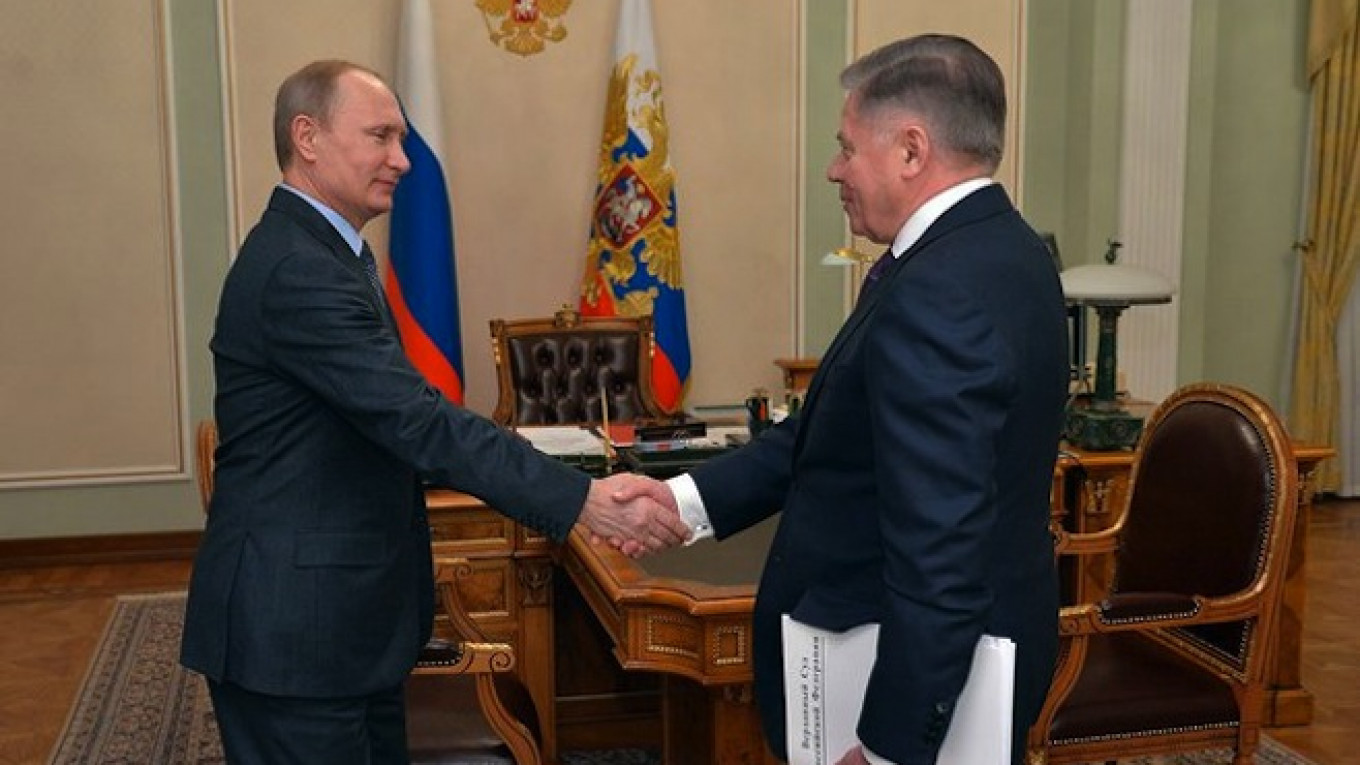Russian state television aired what it said was footage of President Vladimir Putin working at his residence outside Moscow on Friday, a first appearance since he dropped out of sight days ago, triggering rumours he was ill or sidelined by internal conflict.
In the footage, Putin was shown in his office at his Novo-Ogaryovo residence, where he conducts many of his meetings, sitting across a table from Supreme Court head Vyacheslav Lebedev and talking about plans to reform the judicial system.
Dressed in grey suit and a blue patterned tie, he looked in no way different from usual. In the brief footage, he was shown nodding and smiling as Lebedev spoke and could be heard saying a few words about the court system.
A visit by Putin to the Kazakh capital, which was to have taken plan this week, was cancelled with no official explanation, while a meeting in Moscow with a delegation from the Georgian separatist region of South Ossetia was also called off.
Kremlin spokesman Dmitry Peskov said on Thursday that Putin, who is 62, was in good health and was working as usual.
However, the cancellation of engagements sparked feverish speculation on Russian social media – though most mainstream organizations, which are deferential to the Kremlin, steered clear of the issue.
The rumors fed into an atmosphere among Moscow's political classes that was already more than usually febrile because of the conflict in Ukraine, and the Feb. 27 killing of opposition figure Boris Nemtsov.
There was no hard evidence that Putin was ill, or that there was any crisis inside the Kremlin. Markets were unruffled by the rumors. The ruble strengthened slightly on Monday, after the Central Bank cut rates by one percentage point, slightly less than some analysts had expected.
Putin will meet Kyrgyzstan President Almazbek Atambayev in St. Petersburg on March 16, the Kremlin said Friday amid speculation over the president's whereabouts and health after he was not seen in public for several days.
A Message from The Moscow Times:
Dear readers,
We are facing unprecedented challenges. Russia's Prosecutor General's Office has designated The Moscow Times as an "undesirable" organization, criminalizing our work and putting our staff at risk of prosecution. This follows our earlier unjust labeling as a "foreign agent."
These actions are direct attempts to silence independent journalism in Russia. The authorities claim our work "discredits the decisions of the Russian leadership." We see things differently: we strive to provide accurate, unbiased reporting on Russia.
We, the journalists of The Moscow Times, refuse to be silenced. But to continue our work, we need your help.
Your support, no matter how small, makes a world of difference. If you can, please support us monthly starting from just $2. It's quick to set up, and every contribution makes a significant impact.
By supporting The Moscow Times, you're defending open, independent journalism in the face of repression. Thank you for standing with us.
Remind me later.


